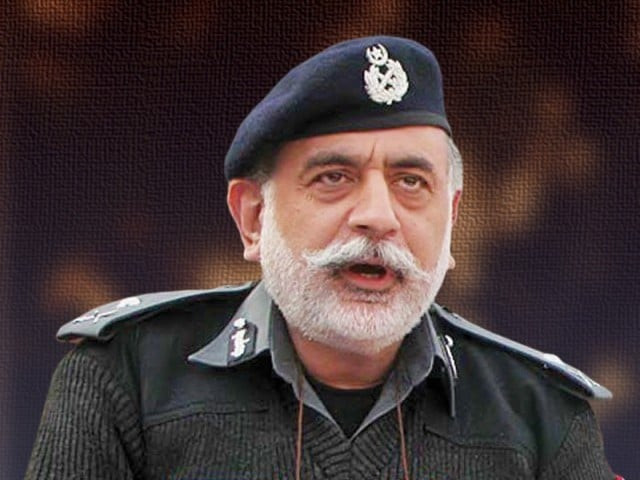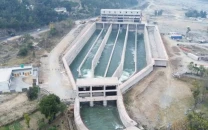Policy board reviews Police Act
The board says law aims at improving public perception about the force

IGP Nasir Khan Durrani. PHOTO: FILE
This was stated in a handout issued on Tuesday. According to the document, Durrani was speaking at Central Police Office during a meeting convened by the Police Policy Board. The meeting was held to deliberate on the Cabinet committee’s recommendations to the legislation.
“The draft law proposed by the K-P police has been designed with the objective of providing a police force that is linked with community,” read the statement. “Furthermore, the law aims to ensure that the force is professional, apolitical and autonomous and run through transparent processes. More importantly, it must remain accountable before public institutions.”
New and improved: Khattak orders reforms for police department
According to the document, the law aims to address issues affecting service delivery.
“With Police Order 2002 as its basis, the proposed amendments emphasise on accountability of police without affecting the operational autonomy of police command,” stated the document. “The law envisages a police force that is both autonomous and accountable before public institutions instead of individuals.”
Accountability
As per the handout, external accountability is required through impartial and independent members of the civil society which will act as watchdogs to keep a check on police processes and complaints of high-handedness.
“It is for the first time in the history of the country that district assemblies will be empowered to discuss the law and order situation of the district at length,” stated the handout. “The district police officer would be accountable to the public representatives at grass-root level.”
The district assemblies will be able to conduct bi-annual review of the police performance and refer the case to the IGP for pre-mature transfer of the DPO in case of unsatisfactory performance by passing a two-third majority resolution to this effect.
Complaint management
In order to look into complaints against senior police officers, the police have proposed establishment of Regional Police Complaints Authorities (RPCA) at divisional level for enquiring into the complaints of police excesses.
“These authorities would comprise three independent members including one retired judge, one retired civil servant and one from the corporate sector,” stated the document.
The proposed draft also provides for establishing Public Liaison Councils (PLCs) at the village and neighbourhood council level. These councils will assist the police in the prevention and detection of crime, besides keeping a watch on the misuse of loudspeakers in mosques and other social vices.
The foundation of a culture of merit, justice, transparency and honesty has been laid in the recruitment process as well. The successful experiment of recruitment through an accredited testing body like NTS by K-P police has also been made part of the legislation.
The proposed draft embodies this principle by granting the administrative, operational and financial autonomy to the IGP who would be empowered to make and notify all postings and transfers within the department without any external influence.













COMMENTS
Comments are moderated and generally will be posted if they are on-topic and not abusive.
For more information, please see our Comments FAQ